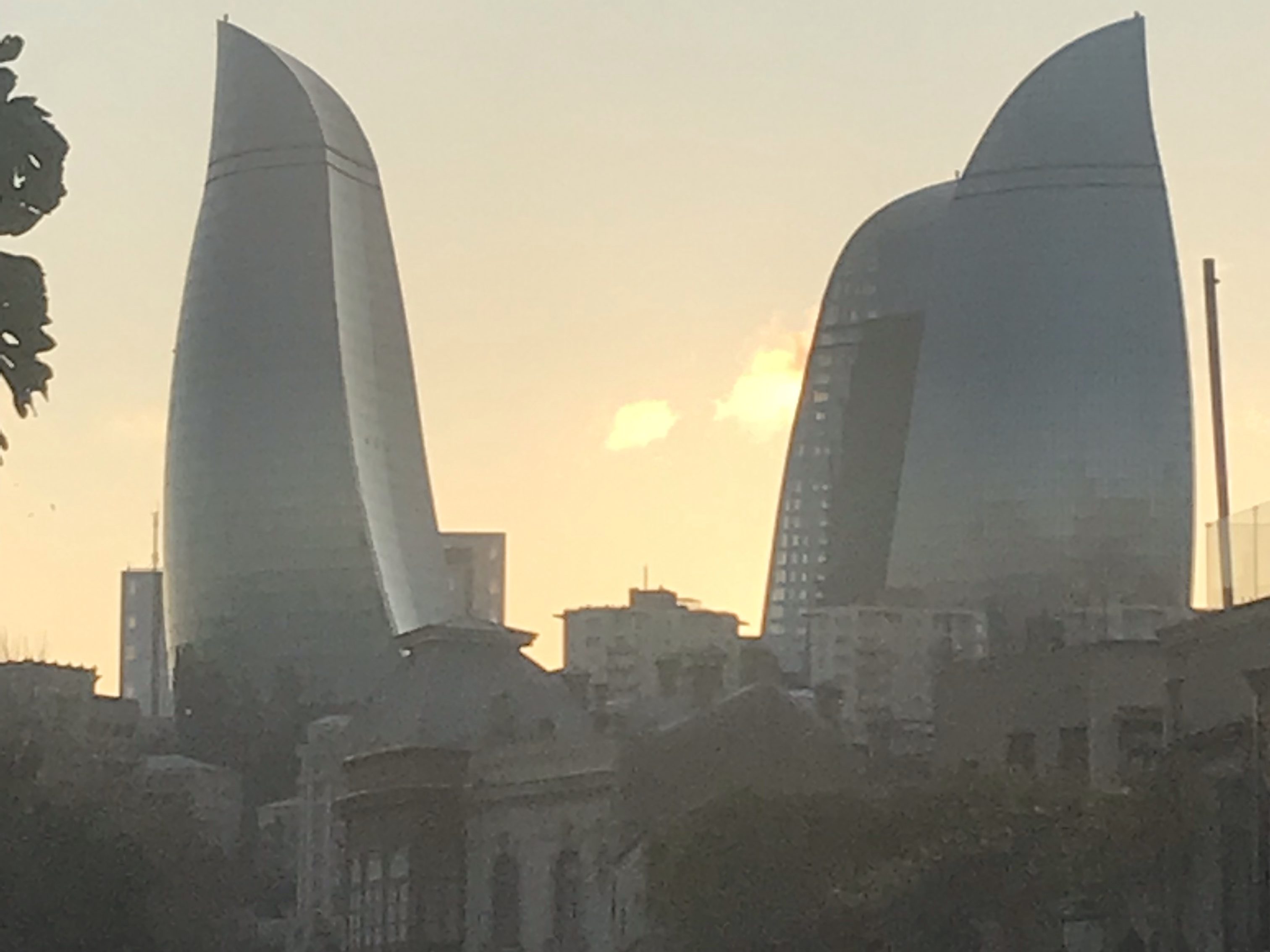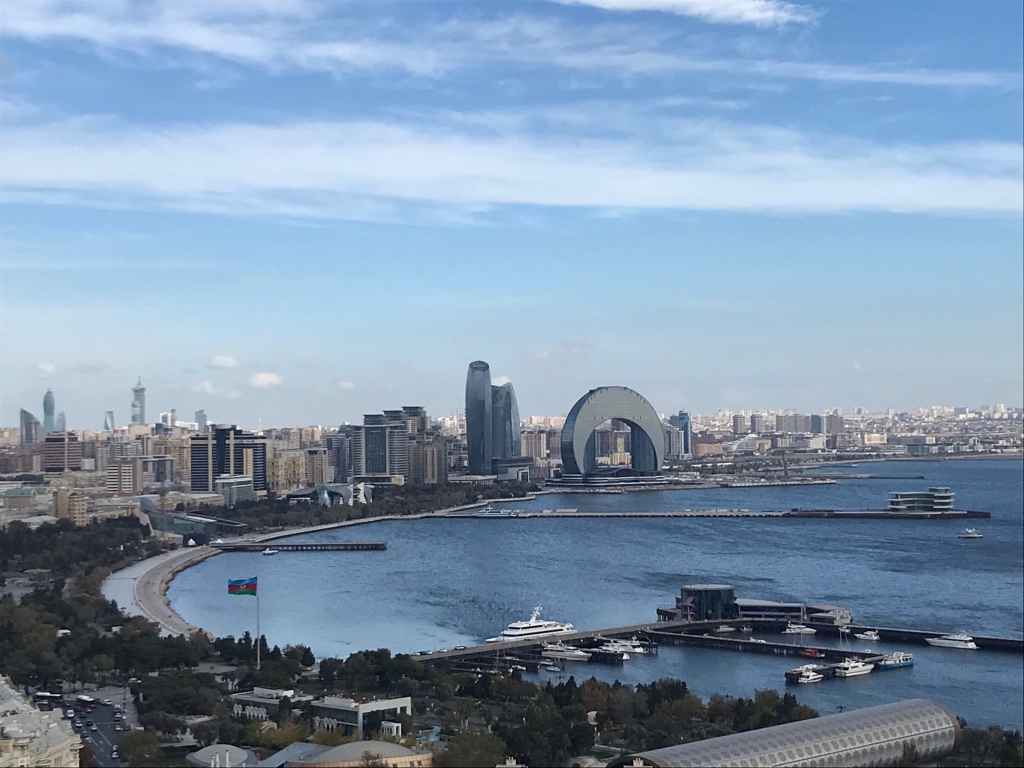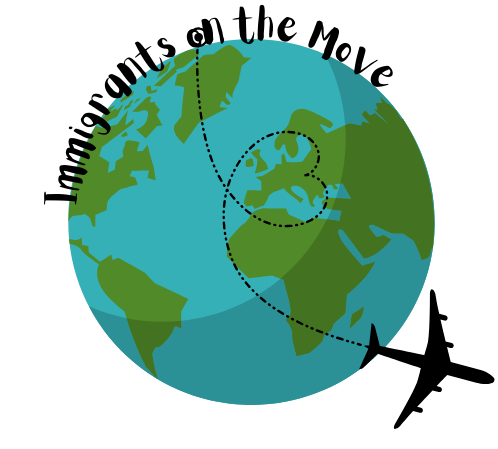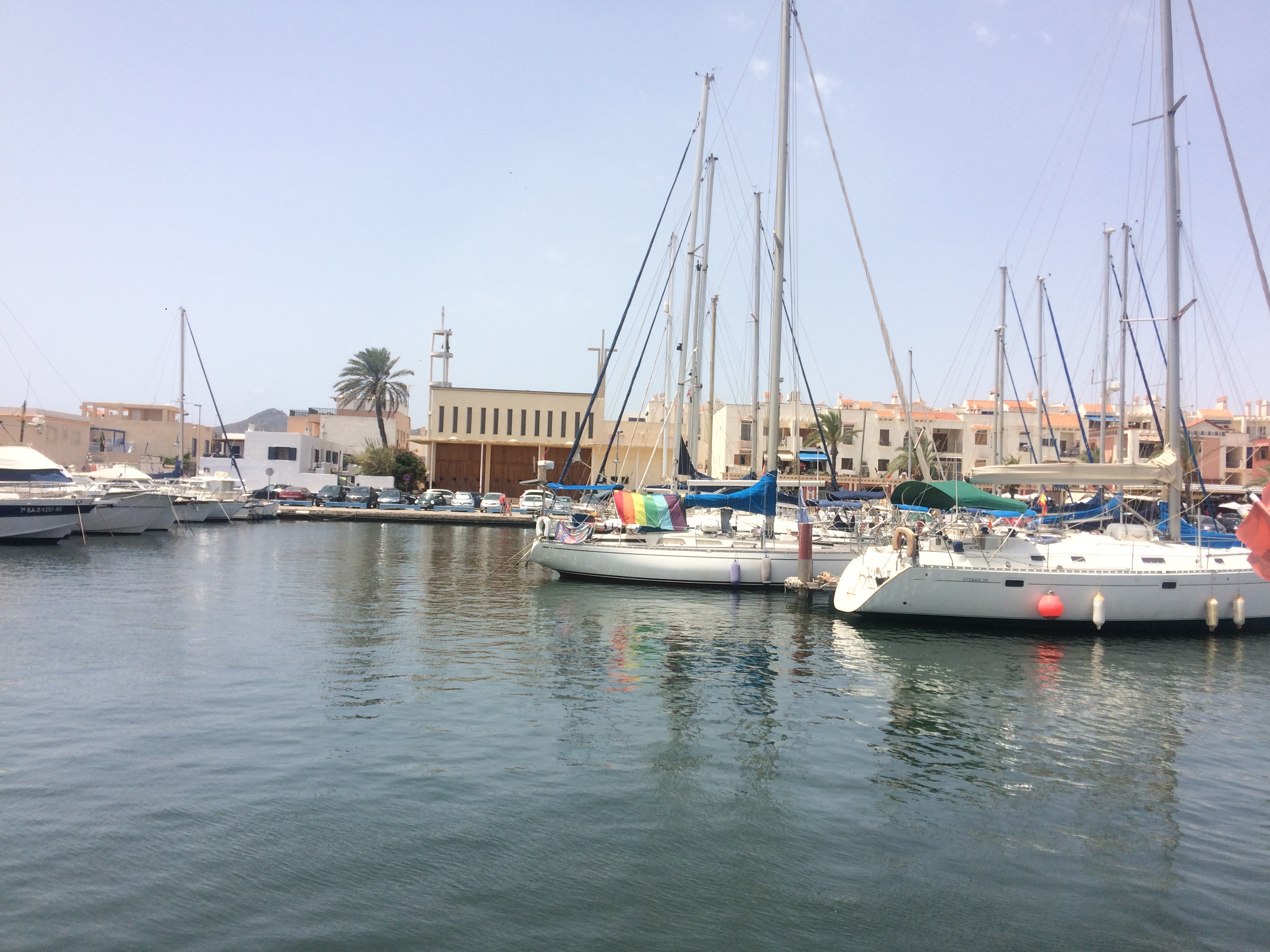
I’ve been reticent to write about Baku, mostly because when I was still in the country I was aware any negative thing said about it could result in them kicking you out. I had a friend who’s cousin was removed from the country due to an oversight with his student visa, he was kept in a hotel room for weeks on end until a flight could be sorted with no food. My friend used to bring him meals in between his own course studies and his job trying to make ends meet. It is something that there are many horror stories about amongst the immigrant community in Baku.
So what’s wrong with Baku? On the surface, nothing. It’s a city I would recommend if you’re in the region for a long weekend. It has beautiful architecture, both old and new, it has some fabulous art and pedestrianised areas, lots of shopping if you like fancy high end shops. It is somewhere I would recommend to visit briefly if you were doing a tour of the region, it is not somewhere I would recommend living. This viewpoint is mine alone, I have met people in Baku who love it there, I also met an overwhelming number who felt the opposite about it.
Why is it such a difficult place to relocate to? I think it was difficult for me, and for a lot of westerners as we went expecting a very Muslim place and what we found was a very Soviet place. The hangover from the Russian occupation is very much ever present in the way things are done, the attitude of the people, and the red tape you have to jump over. Would it have been so difficult if my personal circumstances hadn’t been strained? Probably not, I’m adaptable to most places and just because I don’t agree with the local culture doesn’t mean I can’t find a way to work at living on their terms.
The biggest challenge for me was that women are considered second class citizens, I had moments where people would talk to my husband and ignore me no matter what I said. My visa had to be signed off with an ‘agreement’ from my husband that he was okay with me living with him. There is a dismissal of women that, as a staunch feminist, breaks my heart. This filters into an attitude of competition between the women, they tear each other down, bitch about each other, and instead of seeing it as an opportunity to stand together, they allow themselves to be divided.
If you spend your life sparing people’s feelings and feeding their vanity, you get so you can’t distinguish what should be respected in them. F. Scott. Fitzgerald
Our first bureaucratic experience was a mandatory blood test. My nerves were already fraying, as stepping into a hospital system that you don’t know, where you struggle to communicate, and you have no assurance or confidence in the cleanliness standards is terrifying. My jaw dropped to the floor when I realised they were still using notebooks in place of computers to keep the records. There were no computers in any of the offices. Add to that the moment when the nurse hacked a small hole into my poor husband’s vein and then proceeded to tell him off for dripping blood on the floor, and suffice to say my confidence in being looked after in a medical emergency was zero. And he went before me, so I then had to pray to any god I could think of that she wouldn’t be as aggressive with my veins.
The next challenge for me was what I call blind patriotism. The question was always asked “How do you like Baku”, but the only acceptable answer was it’s great/fab/wonderful/beautiful. There was no space for any criticism, which I later grew to understand was because of the repercussions on the people. Their government didn’t just expect blind patriotism, they enforced it. This was the hierarchy I was now introduced to. Not something I had experienced before this move. There was a pecking order and it was fiercely protected. The people working for the government and their children could do what they wanted, throw their weight around, get people removed from tables/sunbeds/public places with a casual don’t you know who I am. From a personal perspective this attitude makes me intolerably sick. Who you are is how you treat people, I do not give two hoots what job you do, and often I would credit the so-called manual labourers as far more important to society than politicians, royalty or lawyers.
My last challenge with this location was the coldness of the people, although I will argue that I learned this was more of a standard resting bitch face than genuine hostility. There was no warmth in the people, and having lived for so long in Spain I was used to more camaraderie, more engagement. The local people did not work that way, but if you put the effort in to draw them out of themselves, they were often kind and sweet. Part of this, I believe, is the restrictive nature of their upbringing, they are taught to do as they’re told, not to think outside of the box, not to have their own viewpoints. There is an unwillingness/inability to see things any way than what they have been told. There are of course some amazing exceptions to this, and I was lucky enough to meet some fabulous strong local women who understood the lessons their country could learn, who were realistic about the shortfalls while still loving the place they called home. One such woman had trained as a human rights lawyer, fully abreast of the knowledge that it was a career that was not currently required in her country, but hopeful that one day they would move in that direction.
There were many other wonderful and difficult experiences in Baku, perhaps too many to list. A part of me thinks that ex-Soviet countries just don’t work for me, and maybe that true – but equally your personal circumstances will always affect your adaptability to a place and for me, I had too much on at that time and the experience was more than I wanted to deal with.
Have you ever lived in an ex-Soviet country? What was your experience of the people and culture?

Make a one-time donation
Make a monthly donation
Make a yearly donation
Choose an amount
Or enter a custom amount
Your contribution is appreciated.
Your contribution is appreciated.
Your contribution is appreciated.
DonateDonate monthlyDonate yearly


Leave a comment